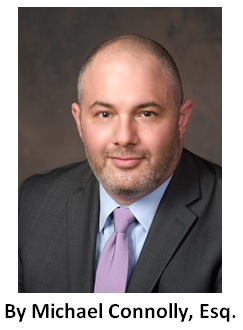Attorneys Permitted to Attend Special Education Mediation
By Michael Connolly, Esq.
Supervising Partner of Special Education
 Since mediation was first offered through the Office for Dispute Resolution (“ODR”) as an option to resolve special education disputes between school districts/charter schools and families in Pennsylvania, attorneys have not been permitted to participate in the process. The thought was to provide families and school districts with a relatively quicker, easier, and less expensive process. In reality, many families entered the mediation process without the expertise needed to navigate the complexities of special education and the law. Often this resulted in families entering mediation agreements without a full appreciation of what they were agreeing to or what they were agreeing to give up.
Since mediation was first offered through the Office for Dispute Resolution (“ODR”) as an option to resolve special education disputes between school districts/charter schools and families in Pennsylvania, attorneys have not been permitted to participate in the process. The thought was to provide families and school districts with a relatively quicker, easier, and less expensive process. In reality, many families entered the mediation process without the expertise needed to navigate the complexities of special education and the law. Often this resulted in families entering mediation agreements without a full appreciation of what they were agreeing to or what they were agreeing to give up.
As of March 1, ODR announced that attorneys will now be permitted to participate in mediation at the discretion of families. In other words, a family can decide to bring legal counsel to mediation in which case the school district or charter school may also bring legal counsel to the mediation. However, if a family does not bring an attorney to mediation, then the school district or charter school similarly cannot bring an attorney to mediation. Allowing families to bring legal counsel to mediation levels the playing field for families who may not have the knowledge base to successfully navigate the process.
While having an attorney present during mediation can be helpful in getting to a resolution that is beneficial to the student, and one that the family clearly understands, there are also other alternative resolution options offered by ODR in which attorneys may attend, included facilitated IEP meeting and Hearing Officer Settlement Conferences, which, depending on the individual situation, may be a better option then mediation.
Contact us for more information about how the attorneys at McAndrews, Mehalick, Connolly, Hulse & Ryan can assist families with any of these alternative resolution options as well as due process.
